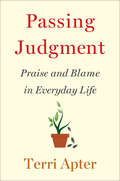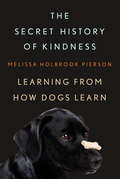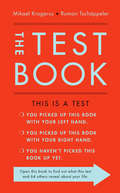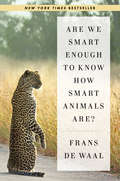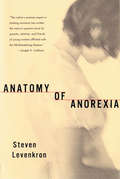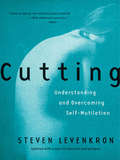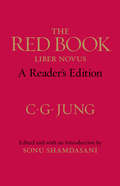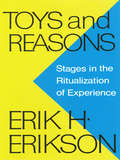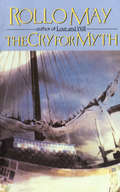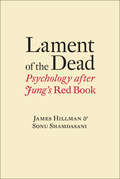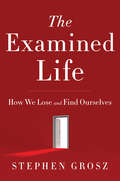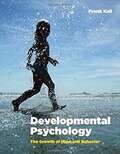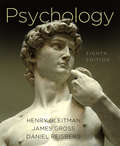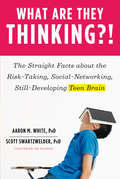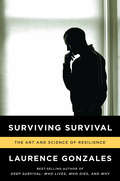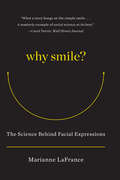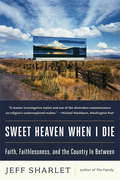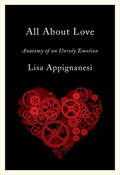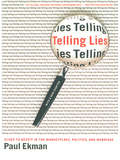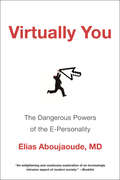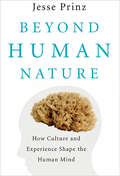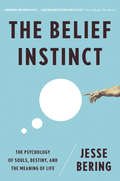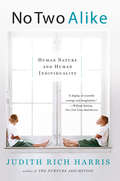- Table View
- List View
Passing Judgment: The Power Of Praise And Blame In Everyday Life
by Terri ApterTerri Apter reveals how everyday judgments impact our relationships and how praise, blame, and shame shape our sense of self. Do you know that praise is essential to the growth of a healthy brain? That experiences of praise and blame affect how long we live? That the conscious and unconscious judgments we engage in every day began as a crucial survival technique? Do you think people shouldn’t be judgmental? But, how judgmental are you, and how does this impact your relationships? “Keenly perceptive” (The Atlantic) psychologist and writer Terri Apter reveals how everyday judgments impact our relationships, and how praise, blame, and shame shape our sense of self. Our obsession with praise and blame begins soon after birth. Totally dependent on others, rapidly we learn to value praise, and to fear the consequences of blame. Despite outgrowing an infant’s dependence, we continue to monitor others’ judgments of us, and we ourselves develop what relational psychologist Terri Apter calls a “judgment meter,” which constantly scans people and our interactions with them, and registers a positive or negative opinion. In Passing Judgment, Apter reveals how interactions between parents and children, within couples, and among friends and colleagues are permeated with praise and blame that range far beyond specific compliments and accusations. Drawing on three decades of research, Apter gives us the tools to learn about our personal needs, goals and values, to manage our biases, to tolerate others’ views, and to make sense of our most powerful, and often confusing, responses to ourselves and to others.
The Secret History of Kindness: Learning from How Dogs Learn
by Melissa Holbrook PiersonAn intimate, surprising look at man's best friend and what the leading philosophies of dog training teach us about ourselves. Years back, Melissa Holbrook Pierson brought home a border collie named Mercy, without a clue of how to get her to behave. Stunned after hiring a trainer whose immediate rapport with Mercy seemed magical, Pierson began delving into the techniques of positive reinforcement. She made her way to B. F. Skinner, the behavioral psychologist who started it all, the man who could train a pigeon to dance in minutes and whose research on how behavior is acquired has ramifications for military dolphin trainers, athletes, dancers, and, as he originally conceived, society at large. To learn more, Pierson met with a host of fascinating animal behaviorists, going behind the scenes to witness the relationships between trainers and animals at the National Zoo in Washington, DC, and to the in-depth seminars at a Clicker Expo where all the dogs but hers seemed to be learning new tricks. The often startling story of what became of a pathbreaking scientist's work is interwoven with a more personal tale of how to understand the foreign species with whom we are privileged to live. Pierson draws surprising connections in her exploration of how kindness works to motivate all animals, including the human one.
The Test Book
by Roman Tschäppeler Mikael KrogerusAn essential library of tests for self-knowledge and success, from the strategic thinking experts behind the international bestseller The Decision Book. Are you clever? Can you self-motivate? Are you creative? How do you handle money? Can you lead others well? With their trademark style and wit, best-selling authors Mikael Krogerus and Roman Tschäppeler present sixty-four tests spanning intelligence and personality type; creativity and leadership skills; fitness and lifestyle; and knowledge and belief. From what you see in a Rorschach test to comparing your workout against a Navy SEAL’s, from EQ to IQ and Myers-Briggs in between, The Test Book offers a panoply of ways to assess yourself and decide what you need to succeed. As Krogerus and Tschäppeler highlight, you can only know whether you have the right skills, the right job, or the right partner when you know where you stand right now. Small enough to fit in your pocket but packed with insight and good humor, The Test Book delivers a quick, fun way to evaluate your life and happiness.
Are We Smart Enough to Know How Smart Animals Are?
by Frans de WaalA New York Times bestseller: "A passionate and convincing case for the sophistication of nonhuman minds." —Alison Gopnik, The Atlantic Hailed as a classic, Are We Smart Enough to Know How Smart Animals Are? explores the oddities and complexities of animal cognition—in crows, dolphins, parrots, sheep, wasps, bats, chimpanzees, and bonobos—to reveal how smart animals really are, and how we’ve underestimated their abilities for too long. Did you know that octopuses use coconut shells as tools, that elephants classify humans by gender and language, and that there is a young male chimpanzee at Kyoto University whose flash memory puts that of humans to shame? Fascinating, entertaining, and deeply informed, de Waal’s landmark work will convince you to rethink everything you thought you knew about animal—and human—intelligence.
Alfred C. Kinsey: A Life
by James H. JonesThe hidden life of Alfred C. Kinsey, the principal architect of the sexual revolution. In this brilliant, groundbreaking biography, twenty years in the making, James H. Jones presents a moving and even shocking portrait of the man who pierced the veil of reticence surrounding human sexuality. Jones shows that the public image Alfred Kinsey cultivated of disinterested biologist was in fact a carefully crafted public persona. By any measure he was an extraordinary man--and a man with secrets. Drawing upon never before disclosed facts about Kinsey's childhood, Jones traces the roots of Kinsey's scholarly interest in human sexuality to his tortured upbringing. Between the sexual tensions of the culture and Kinsey's devoutly religious family, Jones depicts Kinsey emerging from childhood with psychological trauma but determined to rescue humanity from the emotional and sexual repression he had suffered. New facts about his marriage, family life, and relationships with students and colleagues enrich this portrait of the complicated, troubled man who transformed the state of public discourse on human sexuality.
Anatomy of Anorexia
by Steven Levenkron"Invaluable to clinicians, parents, teenagers, and adults who are struggling with anorexia." —Lynn E. Ponton, M.D. Anatomy of Anorexia is a tremendous tool for families: now more than ever, early diagnosis and treatment, and family participation, are crucial in helping the anorexic. Preeminent therapist Steven Levenkron demystifies this life-threatening disease and shows how the millions of girls and women who are afflicted with anorexia can be helped—and can look forward to rich and productive lives. "The nation’s premier expert in treating anorexia has written the nation’s premier book for parents, relatives, and friends of young women afflicted with this life-threatening disease."—Joseph A. Califano Jr., president of the National Center on Addiction and Substance Abuse at Columbia University and former U.S. Secretary of Health, Education, and Welfare "[Levenkron’s] insights, descriptions of family relationships, and treatment recommendations for therapists create a rich, deep, and most helpful guide for a community of people whose lives are deeply and painfully affected by this persistent illness."—Samuel C. Klagsbrun, M.D.
Cutting: Understanding and Overcoming Self-Mutilation
by Steven Levenkron<P> A seminal work on treating self-mutilation, revised and updated with illuminating case studies and newly available resources. <P> Nearly a decade ago, Cutting boldly addressed a traumatic psychological disorder now affecting as many as two million Americans and one in fifty adolescents. More than that, it revealed self-mutilation as a comprehensible, treatable disorder, no longer to be evaded by the public and neglected by professionals. Using copious examples from his practice, Steven Levenkron traces the factors that predispose a personality to self-mutilation: genetics, family experience, childhood trauma, and parental behavior. Written for sufferers, parents, friends, and therapists, Cutting explains why the disorder manifests in self-harming behaviors and describes how patients can be helped.
The Red Book: A Reader's Edition
by C. G. Jung Sonu Shamdasani John Peck Mark KyburzA portable edition of the famous Red Book text and essay. The Red Book, published to wide acclaim in 2009, contains the nucleus of C. G. Jung's later works. It was here that he developed his principal theories of the archetypes, the collective unconscious, and the process of individuation that would transform psychotherapy from treatment of the sick into a means for the higher development of the personality. As Sara Corbett wrote in the New York Times, "The creation of one of modern history's true visionaries, The Red Book is a singular work, outside of categorization. As an inquiry into what it means to be human, it transcends the history of psychoanalysis and underscores Jung's place among revolutionary thinkers like Marx, Orwell and, of course, Freud." The Red Book: A Reader's Edition features Sonu Shamdasani's introductory essay and the full translation of Jung's vital work in one volume.
Toys and Reasons: Stages in the Ritualization of Experience
by Erik H. EriksonIn a moment in our history beset with grave doubts, Erik H. Erickson inquires into the nature and structure of the shared visions which invigorate some eras and seemed so fatefully lacking in others. He illustrates the human propensity for play and vision, from the toy world of childhood to the dream life of adults, and from the artist's imagination to the scientist's reason. Finally, he enlarges on the origins and structure of one shared vision of universal significance, namely, the American Dream. Such a worldview, he concludes, consists of both vision and counter vision (political and religious, economic and technological, artistic and scientific) which vie with each other to give a coherent meaning to shared realities and to liberate individual and communal energy. Erickson postulates that a space-time orientation provided by a viable worldview is, complimentary to the inner work of the individual psyche and is attuned to its multiple functions. In a central chapter, the author links the phylogeny and the ontogeny of worldviews by describing stages in the ritualization of everyday life--that is, the interplay of customs (including the use of language) with from birth to death convey and confirm the "logic" of the visions predominant or contending in a society. He emphasizes the playful and yet compelling power of viable ritualization to connect individual growth with the maintenance of a vital institutions; but he also illustrates the fateful tendency of human interplay to turn into self-deception and collusion, of ritualization to become deadly ritualism--and of visions to end in nightmares of alienation and distraction. Erickson advocates the pooling of interdisciplinary insights in order to clarify the conscious and unconscious motivation which works for or against the more universal and more insightful worldview essential in a technological age.
The Cry for Myth
by Rollo MayHere are case studies in which myths have helped Dr. May's patients make sense out of an often senseless world. Rollo May, respected therapist and bestselling author of Love and Will, discusses the relationships between myths and the subconscious, showing how myths can provide meaning and structure for those who seek direction in a confused world.
Lament of the Dead: Psychology After Jung's Red Book
by James Hillman Sonu ShamdasaniWith Jung's Red Book as their point of departure, two leading scholars explore issues relevant to our thinking today. In this book of dialogues, James Hillman and Sonu Shamdasani reassess psychology, history, and creativity through the lens of Carl Jung's Red Book. Hillman, the founder of Archetypal Psychology, was one of the most prominent psychologists in America and is widely acknowledged as the most original figure to emerge from Jung's school. Shamdasani, editor and cotranslator of Jung's Red Book, is regarded as the leading Jung historian. Hillman and Shamdasani explore a number of the issues in the Red Book--such as our relation with the dead, the figures of our dreams and fantasies, the nature of creative expression, the relation of psychology to art, narrative and storytelling, the significance of depth psychology as a cultural form, the legacy of Christianity, and our relation to the past--and examine the implications these have for our thinking today.
The Examined Life: How We Lose and Find Ourselves
by Stephen GroszAn extraordinary book for anyone eager to understand the hidden motives that shape our lives. We are all storytellers--we create stories to make sense of our lives. But it is not enough to tell tales. There must be someone to listen. In his work as a practicing psychoanalyst, Stephen Grosz has spent the last twenty-five years uncovering the hidden feelings behind our most baffling behavior. The Examined Life distils more than 50,000 hours of conversation into pure psychological insight without the jargon. This extraordinary book is about one ordinary process: talking, listening, and understanding. Its aphoristic and elegant stories teach us a new kind of attentiveness. They also unveil a delicate self-portrait of the analyst at work and show how lessons learned in the consulting room can reveal as much to the analyst as to the patient. These are stories about our everyday lives: they are about the people we love and the lies we tell, the changes we bear and the grief. Ultimately, they show us not only how we lose ourselves but also how we might find ourselves.
Developmental Psychology: The Growth of Mind and Behavior
by Frank KeilClear, compelling, and authoritative. <p><p> Frank Keil’s Developmental Psychology represents his vision of how psychology should be taught and is based on nearly four decades of teaching a lecture course in developmental psychology and conducting developmental research. <p><p>With a cohesive narrative, clear art program, and carefully crafted pedagogy, the book guides students through material that is as rich as it is intriguing. Keil’s narrative reflects his passion for engaging students’ intellectual curiosity with an analytical approach that explores the big questions, links theory with evidence, and treats developmental psychology as a science. <p><p>Developmental Psychology invites readers to celebrate the beauty and to understand the depth of psychological development.
Psychology
by Daniel Reisberg Henry Gleitman James GrossThe most intelligent book ever written for the course, reinvented for today's students. The Eighth Edition has been reorganized and streamlined to mirror the organization of today's courses, updated to include extensive coverage of the latest discoveries and research, and reimagined with new pedagogy, figures, and technology. James Gross, co-author of the text and Director of the Psychology One Teaching Program at Stanford University, believes in an integrated approach that looks at multiple perspectives to understand the larger complexities of the field. In the Eighth Edition, the authors present psychology as a central discipline that connects to the humanities as well as the exciting advances in neuroscience.
Civilization and its Discontents
by Sigmund Freud James StracheyFreud gives his views on the conflict between the individual's claim to freedom and society's demands.
What Are They Thinking?!: The Straight Facts about the Risk-Taking, Social-Networking, Still-Developing Teen Brain
by Scott Swartzwelder Aaron M. WhiteGroundbreaking developments in adolescent brain research underpin this straightforward guide to understanding--and dealing with--teen behavior. Adolescence has long been characterized as the "storm and stress" years, and with recent developments in digital communication, it seems today's teens are in for a more complicated journey than ever before. Even the most sympathetic, "in-touch" parents might throw their hands up in frustration at their teen's unpredictable and risky behavior and ask: what are they thinking?! It turns out that teens' thrill-seeking activities and quests for independence aren't just the result of raging hormones, but rather typical effects of the unique structure and development of the adolescent brain. In easily navigable chapters full of practical anecdotes and examples, acclaimed scientists Aaron White and Scott Swartzwelder draw from the most recent studies on the teen brain to illuminate the complexities of issues such as school, driving, social networking, video games, and mental health in kids whose crucial brain connections are just coming online.
Surviving Survival: The Art and Science of Resilience
by Laurence GonzalesYou have survived the crisis--trauma, disease, accident, or war--now how do you get your life back? The shark attacked while she was snorkeling, tearing through Micki Glenn's breast and shredding her right arm. Her husband, a surgeon, saved her life on the spot, but when she was safely home she couldn't just go on with her life. She had entered an even more profound survival journey: the aftermath. The survival experience changes everything because it invalidates all your previous adaptations, and the old rules don't apply. In some cases survivors suffer more in the aftermath than they did during the actual crisis. In all cases, they have to work hard to reinvent themselves. Drawing on gripping cases across a wide range of life-threatening experiences, Laurence Gonzales fashions a compelling argument about fear, courage, and the adaptability of the human spirit. Micki Glenn was later moved to say: "I don't regret that this happened to me. [It] has been . . . probably the single most positive experience I've ever had."
Why Smile: The Science Behind Facial Expressions
by Marianne Lafrance"A charming, thoughtful book, one that makes a powerful case for smiles as 'social acts with consequences.' "--Boston Sunday Globe When someone smiles, the effects are often positive: a glum mood lifts; an apology is accepted; a deal is struck; a flirtation begins. But change the circumstances or the cast of a smile, and the terms shift: a rival grins to get under your skin; a bully's smirk unsettles his mark. Marianne LaFrance, called the world's expert on smiles, investigates the familiar grin and finds that it is not quite as simple as it first appears. LaFrance shows how the smile says much more than we realize--or care to admit: not just cheerful expressions, smiles are social acts with serious consequences. Drawing on her research conducted at Yale University and Boston College as well as the latest studies in psychology, medicine, anthropology, biology, and computer science, LaFrance explores the compelling science behind the smile. Who shows more fake smiles, popular kids or unpopular kids? Is it good or bad when a bereaved person smiles? These are some of the questions answered in this groundbreaking and insightful work. To read it is to learn just how much the smile influences our lives and our relationships.
Sweet Heaven When I Die: Faith, Faithlessness, and the Country In Between
by Jeff Sharlet"A master investigative stylist and one of the shrewdest commentators on religion's underexplored realms."--Michael Washburn, Washington Post In this gorgeous collection of essays that has drawn comparisons to the work of Joan Didion, John McPhee, and Norman Mailer, best-selling author Jeff Sharlet reports back from the far reaches of belief, whether in the clear mountain air of "Sweet Fuck All, Colorado" or in a midnight congregation of anarchists celebrating a victory over police. Like movements in a complex piece of music, Sharlet's dispatches vibrate with all the madness and beauty, the melancholy and aspirations for transcendence, of American life.
All About Love: Anatomy of an Unruly Emotion
by Lisa AppignanesiAn intimate and illuminating look at how love shapes our culture and our lives. Unruly, unpredictable--love is a maddening deity. In this insightful and eloquent meditation on that many-splendored thing, Lisa Appignanesi draws together psychology, literature, popular culture, and her own experiences in order to tangle with love's paradoxes across the span of our lives. Beginning with the rose-tinted raptures of first love, she proceeds to love in marriage, triangulated love, jealousy and adultery, love in the family, and friendship. By illuminating the expectations, the joys and difficulties, and the cultural undercurrents that accompany each stage, Appignanesi raises provocative questions about love in the twenty-first century: Has the unbinding of obstacles to love emptied it of meaning? Do our desires for variety and experimentation result in increased anxiety? What gains and losses have come from greater openness and equality and the burgeoning sphere of virtual fantasy? As rewarding as it is captivating, All about Love will leave you a little wiser about the emotion that rules our lives.
Telling Lies (Revised Edition): Clues To Deceit In The Marketplace, Politics, And Marriage
by Paul EkmanFrom breaking the law to breaking a promise, how do people lie and how can they be caught? In this revised edition, Paul Ekman, a renowned expert in emotions research and nonverbal communication, adds a new chapter to present his latest research on his groundbreaking inquiry into lying and the methods for uncovering lies. Ekman has figured out the most important behavioral clues to deceit; he has developed a one-hour self-instructional program that trains people to observe and understand "micro expressions"; and he has done research that identifies the facial expressions that show whether someone is likely to become violent. ?Telling Lies?describes how lies vary in form and how they can differ from other types of misinformation that can reveal untruths. It discusses how a person's body language, voice, and facial expressions can give away a lie but still fool professional lie hunters--even judges, police officers, drug enforcement agents, and Secret Service agents.
Virtually You: The Dangerous Powers of the E-Personality
by Elias Aboujaoude"Instantly engaging and eminently accessible . . . . an enlightening and cautionary exploration of an increasingly intrusive aspect of modern society." --Booklist While the Internet can enhance well-being, Elias Aboujaoude has spent years treating patients whose lives have been profoundly disturbed by it. Part of the danger lies in how the Internet allows us to act with exaggerated confidence, sexiness, and charisma. Aboujaoude dubs this new self our "e-personality" and argues that its traits are too potent to be confined online. Offline, too, we're becoming impatient, unfocused, and urge-driven. Virtually You draws from Aboujaoude's personal and professional experience to highlight this new phenomenon. The first scrutiny of the virtual world's transformative power on our psychology, Virtually You demonstrates how real life is being reconfigured in the image of a chat room, and how our identity increasingly resembles that of our avatar.
Beyond Human Nature: How Culture and Experience Shape the Human Mind
by Jesse J. Prinz"A loud counterblast to the fashionable faith of our times: that human nature is driven by biology . . . urgent and persuasive."--Sunday Times (London) In this era of genome projects and brain scans, it is all too easy to overestimate the role of biology in human psychology. But in this passionate corrective to the idea that DNA is destiny, Jesse Prinz focuses on the most extraordinary aspect of human nature: that nurture can supplement and supplant nature, allowing our minds to be profoundly influenced by experience and culture. Drawing on cutting-edge research in neuroscience, psychology, and anthropology, Prinz shatters the myth of human uniformity and reveals how our differing cultures and life experiences make each of us unique. Along the way he shows that we can't blame mental illness or addiction on our genes, and that societal factors shape gender differences in cognitive ability and sexual behavior. A much-needed contribution to the nature-nurture debate, Beyond Human Nature shows us that it is only through the lens of nurture that the spectrum of human diversity becomes fully and brilliantly visible.
The Belief Instinct: The Psychology of Souls, Destiny, and the Meaning of Life
by Jesse BeringTop 25 Books of 2011 by the American Library Association, Choice Reviews Named one of the 11 Best Psychology Books of 2011 by The Atlantic "A balanced and considered approach to this often inflammatory topic." --Nature Lively and brilliantly argued, The Belief Instinct explains the psychology behind belief. Drawing on surprising new studies as well as on literature, philosophy, and even pop culture, The Belief Instinct will reward readers with an enlightened understanding of belief--as well as the tools to break free of it.
No Two Alike: Human Nature and Human Individuality
by Judith Rich HarrisA groundbreaking theory of personality. The author of the controversial book The Nurture Assumption tackles the biggest mystery in all of psychology: What makes people differ so much in personality and behavior? It can't just be "nature and nurture," because even identical twins who grow up together--same genes, same parents--have different personalities. And if psychologists can't explain why identical twins are different, they also can't explain why each of us differs from everyone else. Why no two people are alike. Harris turns out to be well suited for the role of detective--it isn't easy to pull the wool over her eyes. She rounds up the usual suspects and shows why none of the currently popular explanations for human differences--birth order effects, for example, or interactions between genes and environment--can be the perpetrator she is looking for. None of these theories can solve the mystery of human individuality. The search for clues carries Harris into some fascinating byways of science. The evidence she examines ranges from classic experiments in social psychology to cutting-edge research in neuroscience. She looks at studies of twins, research on autistic children, observations of chimpanzees, birds, and even ants. Her solution is a startlingly original one: the first completely new theory of personality since Freud's. Based on a principle of evolutionary psychology--the idea that the human mind is a toolbox of special-purpose devices--Harris's theory explains how attributes we all have in common can make us different. This is the story of a scientific quest, but it is also the personal story of a courageous and innovative woman who refused to be satisfied with "what everyone knows is true."
